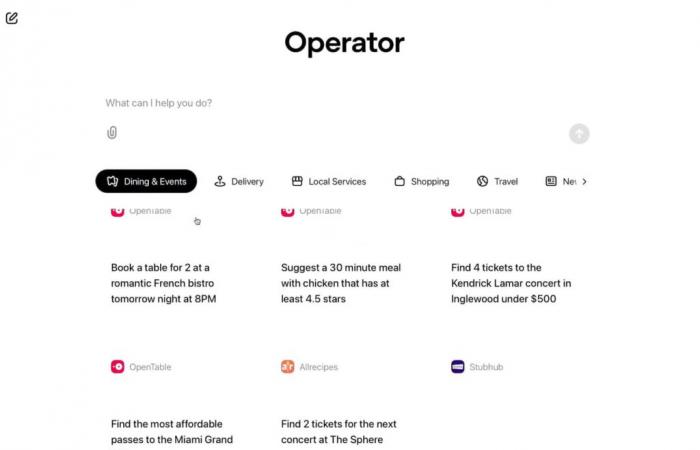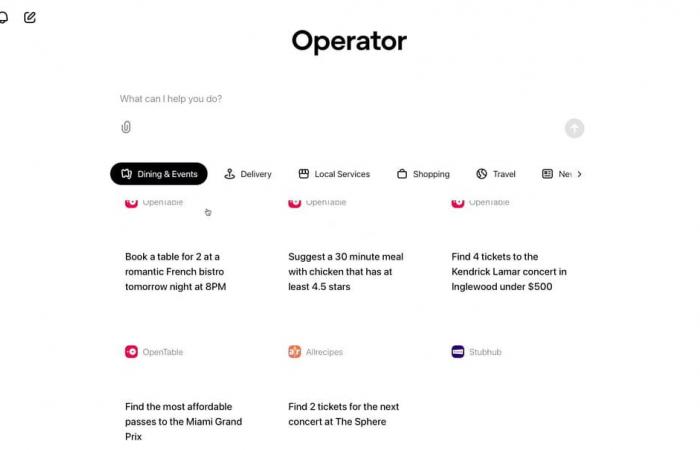Operator is able to automate complex tasks formerly performed by the user in his web browser.
The rumor said true. Two days after the announcement of the Stargate project, Openai unveils this first artificial intelligence agent this Thursday, January 23, 2025, designed for the web. According to the definition of Openai, an agent is an artificial intelligence capable of working independently: he is entrusted with a task, he performs it. “We believe that it is a major trend that will impact the way people work, their productivity, their creativity, what they can accomplish,” said Sam Altman in the introduction. Operator is the first incarnation: an assistant with his own web browser, capable of seeing and interacting with pages like a human would do, whether to fill out a form, order shopping or create the same.
How does Operator work?
Under the hood, Operator is propelled by a new model called “Computer-USing Agent” or “CUA”. This AI combines GPT-4O's vision capacities with an advanced reasoning system, developed by strengthening. Concretely, the model can see what is displayed on the screen of the Operator browser via screenshots and interact with all the elements of a graphical interface – buttons, menus, text fields – using a keyboard and a Virtual mouse.
If the system encounters an obstacle or makes an error, it can self-coring thanks to its reasoning capacities. According to Openai, CUA is already establishing new records on Webarena and Webvoyer automated web navigation benchmarks. In the event of a blockage, the agent does not insist: he simply runs his hand to the user.
What are the first cases of use?
For its launch, Operator mainly focuses on time -consuming or repetitive use cases. He can fill out forms, order online races and even create the same. To start, simply describe in natural language what you want to accomplish. The agent then takes control of his own browser and performs the task, requesting user approval for important actions.
-OPENAI has teamed up with several web giants: Doordash (meal delivery), Instacart (racing delivery), openable (restaurant reservation), priceline (travel booking), stubhub (event ticket office) and Uber to optimize The experience on different platforms. The objective is double: to improve the efficiency of the agent while respecting the standards established by these services. OPENAI also explores Operator's potential in public services. A pilot partnership with the city of Stockton, California, aims to facilitate citizens' access to municipal services.
Un agent ultra-premium
Openai has deployed three levels of protection to supervise his agent. At the first level, Operator is scheduled to sell control to the user during critical moments: entering sensitive information such as connection identifiers or payment data, Captcha resolution, or final validation of an order. At the second level, data protection: users can erase their navigation history from a click and deactivate the use of their data for model training. Finally, Openai has set up security against malware that would try to handle the agent via injections of hidden prompt or malicious code. A “monitor model” constantly monitors the behavior of Operator and can break a task at the slightest suspicion of suspicious activity.
Operator is only accessible to Pro subscribers (the highest level of Chatgpt at 200 dollars) connected from the United States, via the dedicated Operator.Chatgpt.com platform. OPENAI plans to gradually extend access to more, team and Enterprise subscribers. The company also announces its intention to make the CUA model available via its API in the coming weeks, allowing developers to create their own agents capable of interacting with graphic interfaces.







